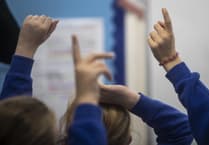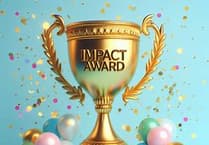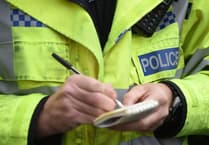I am not a nature lover. I am a fish.
Bear with me.
This is actually about biodiversity. People are banging on about biodiversity all the time. Everywhere you turn people are telling us we need more of it. And I’m partly to blame. Central to the district council’s work in the coming years is the need for nature recovery and to do more for biodiversity.
Even the Government’s talking about it. For example there’s a move (painfully slow) to shift away from the old system which rewarded farmers simply for owning land – i.e. the more land you own, the more you get paid - to a new system which will reward farmers according to the environmental benefits the land delivers.
Something called ‘Biodiversity Net Gain’ is being introduced in planning. Which means developers who want to build a pile of houses have to ensure at least a 10% improvement in biodiversity in the process.
Councils of all kinds – including little village parish councils, now have a legal duty to consider biodiversity in all they do: are they spraying pesticides? Are they managing roadside verges in a way that’s best for nature? Are they planting trees, caring for hedges, sourcing sustainable materials (like peat-free compost)? And are they encouraging others to consider biodiversity too?
Defra (the Department for Food and Rural Affairs) defines biodiversity as “the variety of all life on Earth. All species of animals and plants – everything that is alive on the planet.”
And Defra says it’s important for its own sake. It has its own intrinsic value. But it’s also important because we – human beings - depend on it for… well, everything. It is the basic building block of the planet’s whole ecosystem.
So this biodiversity business isn’t an agenda driven by people with a passion for butterflies; a project for nature lovers and wildlife hobbyists.
This is about how we get food, fresh water and clean air. In other words, if we muck up biodiversity, we muck up everything.
And all the signs are – that’s exactly what we’re doing – especially in the UK - one of the most nature-depleted countries on the planet.
A State of Nature report is now published every year – and every year, it’s pretty clear, the direction is – down – in pretty much all categories: wildflowers, insects, pollinators, birds – we’re losing them at an alarming rate.
Which brings me to the fish thing at the start – and trying to justify that headline. Our relationship with nature is like the relationship a fish has with the ocean. Or as Seth Hughes puts it on Instagram; “Is a fish ‘in to’ the ocean – like its own environment is a weekend hobby?”
Biodiversity is not an optional extra – it’s about life on the planet



